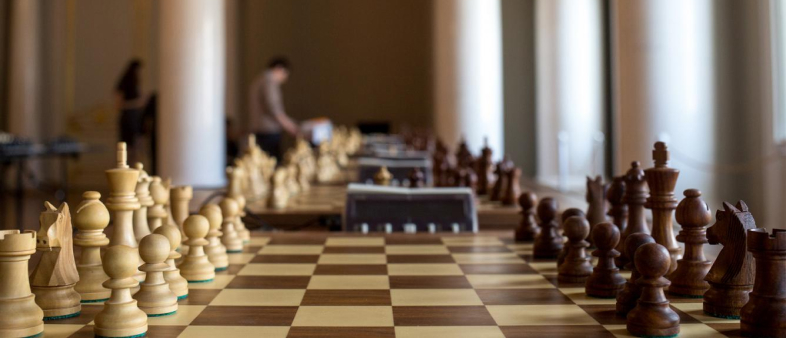Chess: How to play it and how to bet on it
Chess is the oldest table game. According to one version, it appeared in India more than one and a half thousand years ago and was called "chaturanga." Modern chess is played by two people on a 64-cell board for white or black figures. The game is considered to be over, if one of the opponents puts a checkmate on the opponent’s king, the time allotted to the game according to the tournament regulations will end if one of the players' surrenders or both players agrees to a draw.

If this material was written not today, but in the early 70s, it could be safely argued that chess is one of the most popular sports. Over time, "mastodons" such as soccer and hockey, pushed chess from the Olympics, but even now major chess tournaments attract a lot of attention. Bookmakers have not bypassed this sport and still actively accept bets.
Grandmasters at the chess olympiad change very rarely. The 16th world chess champion, Norwegian Magnus Carlsen, has held the crown since 2013.
Types of chess bets
At some bookmakers, you can bet on the total number of moves in the game or on whether the championship will end with special additional games (fast chess, blitz chess, Armageddon chess).
But more specific outcomes are present in this sport.
White or black victory ("P1" or "P2"). The traditional type of betting on the main outcome of the competition is also typical for chess betting. Also, the bet on the main outcomes includes the option of betting on a draw.
Double chance ("1" or "2x"). This option is liked by more cautious players, such bets state that a particular opponent at least avoids defeat in the game, that is, either he will either win or the game will end in a draw.
It's zero-slack. Since chess does not have an account in a particular game, bookmakers offer only one option of the odds. It is important to note the difference between this type of bet and the previous one: the bet with a handicap (0) also implies that the specified participant of the competition will at least avoid defeat (will not lose), but in the case of a draw bet with a zero handicap is calculated by a return, and the bet is calculated by a return, and the bet is calculated by a return double-off - winning.
Also, some bookmakers can offer long-term bets on chess, for example, on the victory of a certain athlete not just in a particular match, but on the results of the entire tournament.
Chess betting strategy
Catch-up strategy for chess
You can find out what the "catch" strategy is in a special section of our Betting School. It is this strategy that best suits chess tournaments. Chess is one of the few sports where protracted results for players are extremely rare.
Example: if an athlete loses two-three games, you can catch up with a draw one-three times. But it is worth remembering that the strategy of "catch-up" is one of the riskiest.
Betting on a draw
In chess, a draw with the participation of grandmasters happens much more often than the outcome of the victory of one of the athletes. In this case, the safety net works well for one of the players with a zero handicap. You can learn what a zero handicap is in our school of betting.
Example: In the match "White" against "Black" you took the victory of "White" with a handicap 0. If the match ends in a draw, the bookmaker will calculate the return of the bet.
Is that possible to win regularly betting on chess?
As we have already written, there is no win-win strategy in chess, as in any other sport. To reduce your risks, you need to understand a particular sport, which you plan to bet on.
Chess is a special game, where in addition to the rules you need to know the psychological state of the athlete, his habits and even weather conditions. After all, the well-being of a grandmaster in bad weather can deteriorate, and chess is a logical game that requires serious concentration.
Having the necessary information, watching the tournaments and the chess world in general, you can greatly increase your chances of winning. Good luck!







